Fluid around your outdoor air conditioning unit could indicate something is wrong. If you find out it is oil, what could have caused this problem, and how can you solve it? We consulted with the experts in this field to provide answers to these questions and more.
Any oily and dusty patches around your outdoor air conditioner could indicate oil is leaking from your unit. The cause of the leak is most likely a faulty compressor.
You are watching: Oil Leaking From AC Outdoor Unit – Why And What To Do?
Before worrying too much, continue reading to know why your AC outdoor unit is leaking oil. Also, in this post, we have included the solutions to this problem and repair costs.
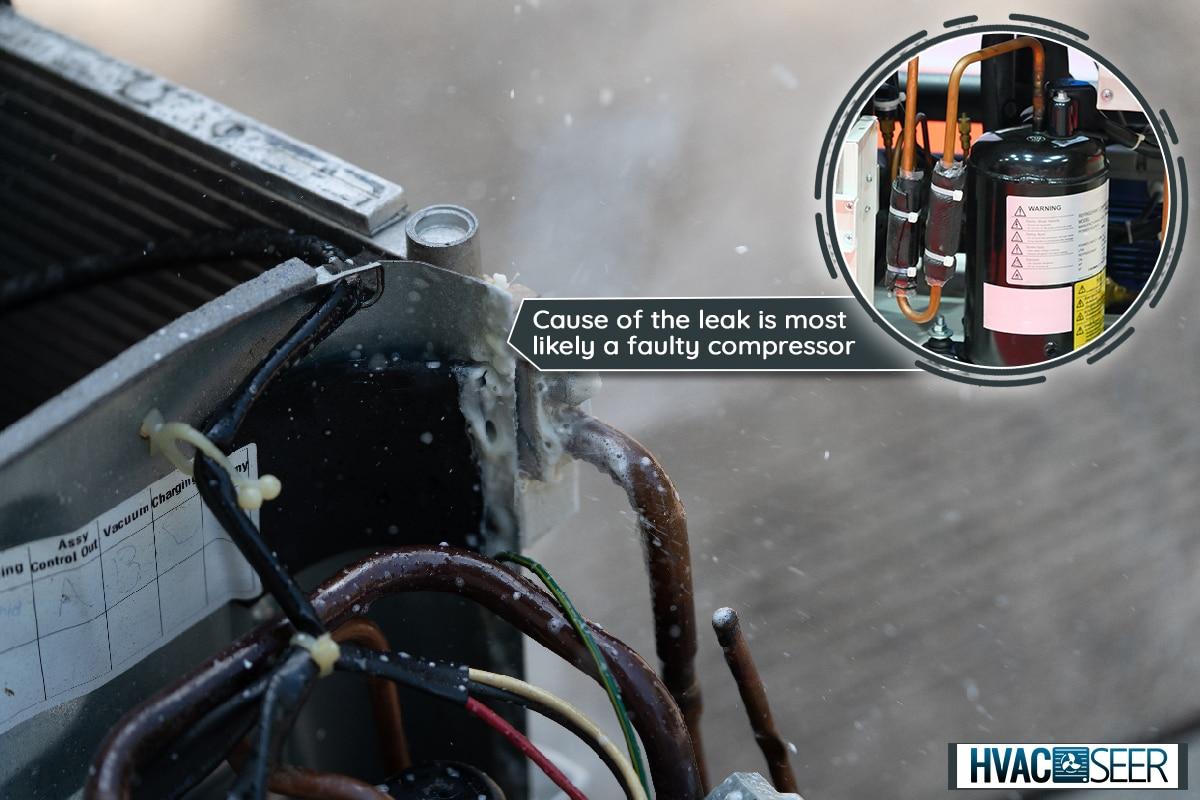
Why Is Your AC Outdoor Unit Leaking Oil?
Oil attracts dust. Thus you are likely to see a dusty patch around your unit if it leaks oil. When you see this, there is a high chance that the compressor is faulty. It could only mean your compressor is not working as efficiently as it should.
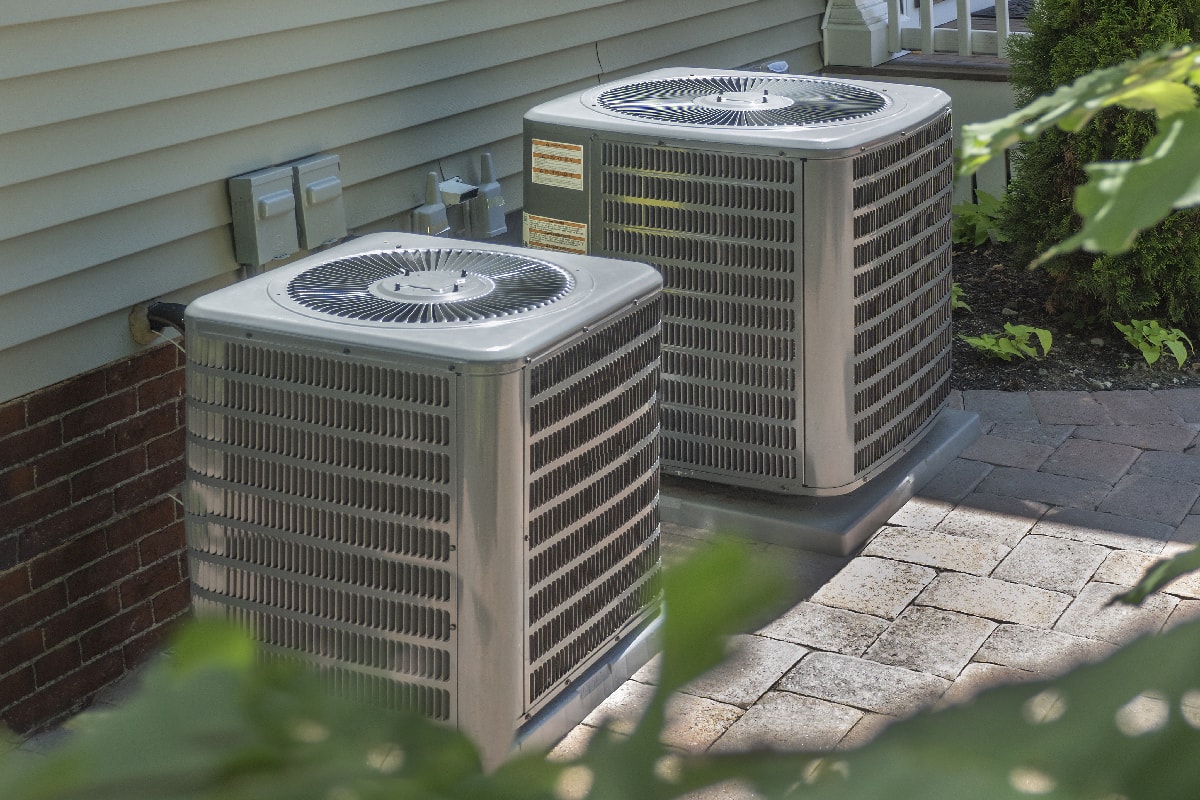
Oil leaks can be hard to detect because the leaks can be very tiny and happen slowly. You may notice leaks when your AC unit stops working.
However, there are signs to watch out for that can alert you oil is leaking. We will tackle this later in the post.
The Importance Of A Compressor In Your Unit
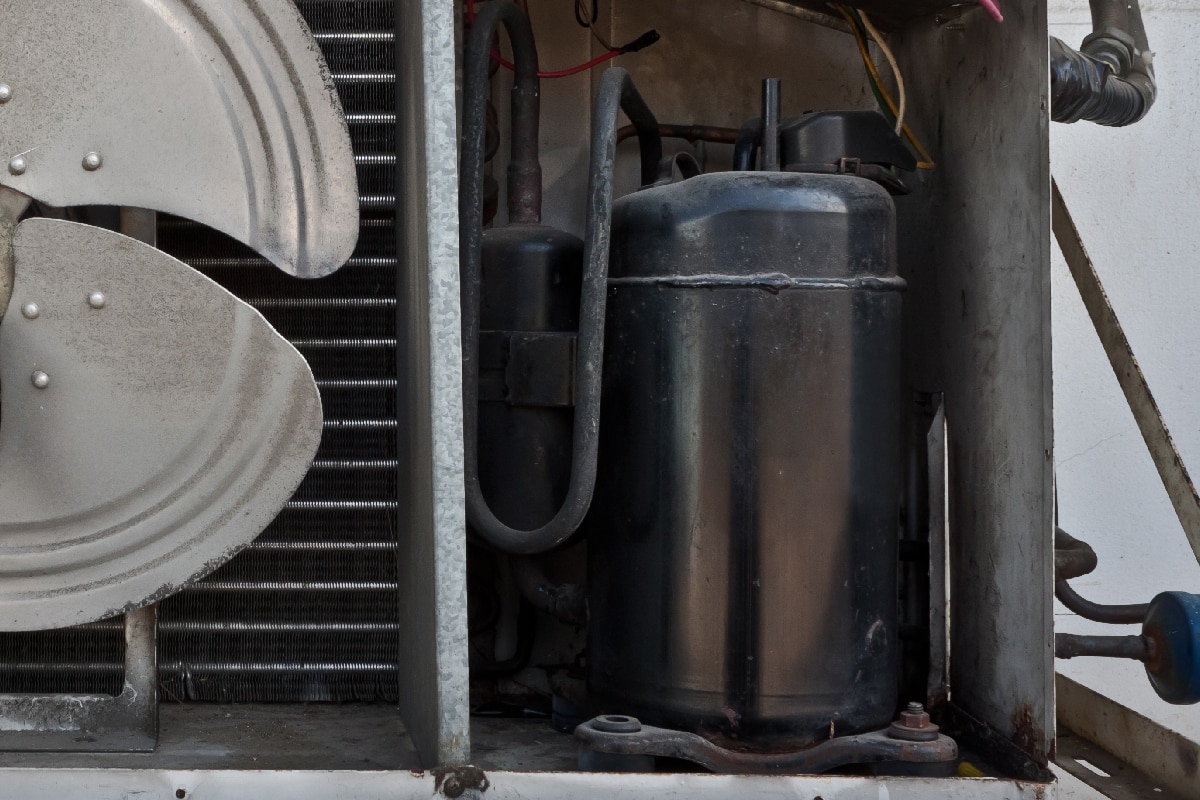
Before we delve into what is causing the leaks, you may want to gain some basic knowledge. How does an AC work, and is the compressor necessary?
To begin with, the three main elements of an AC are the compressor, evaporator coils, and condenser. Secondly, your AC has a liquid called refrigerant that runs through a closed-loop system.
The air in your home goes over the evaporator coils. They are located inside the air handler or attached to a furnace.
The refrigerant inside the evaporator coils absorbs the heat from the air, turning it into vapor. This process cools your home.
When it leaves the evaporator, it passes through the compressor, which is in the unit outside. While there, the refrigerant’s pressure increases, converting it into liquid. It then moves into the condenser also found in the unit outside.
The fan here dissipates the heat from the refrigerant, releasing the heat outdoors. The refrigerant returns to the evaporator coils to start the process again, and the cycle continues.
Causes Of A Faulty Compressor
The refrigerant contains oil that lubricates the compressor. When the refrigerant leaks, oil too will leak. As mentioned above, you will see an oily patch on the ground around the AC.
Read more : How To Stop Bugs From Eating Your Vegetables
The two reasons below are some causes why your AC refrigerant leaks, including:
Incorrect Installment
Your AC could leak because some parts are not installed correctly. Sometimes, the units may leave the factory with defects that later create leaks.
Wear And Tear
As with any other appliance, your AC will wear and tear. The metal may rust, causing it to erode, forming holes through which leaks occur. The rubber seal valves also wear and tear over time, causing them to leak.
Can You Repair A Faulty AC Compressor?
A faulty AC compressor cannot be repaired. You can only replace it. In most cases, it is a job for a professional unless you have the skills and competency. The steps to follow include:
Tools and items needed
- New compressor – get the correct part by checking its type and part number of your current compressor.
- Refrigerant recovery tank
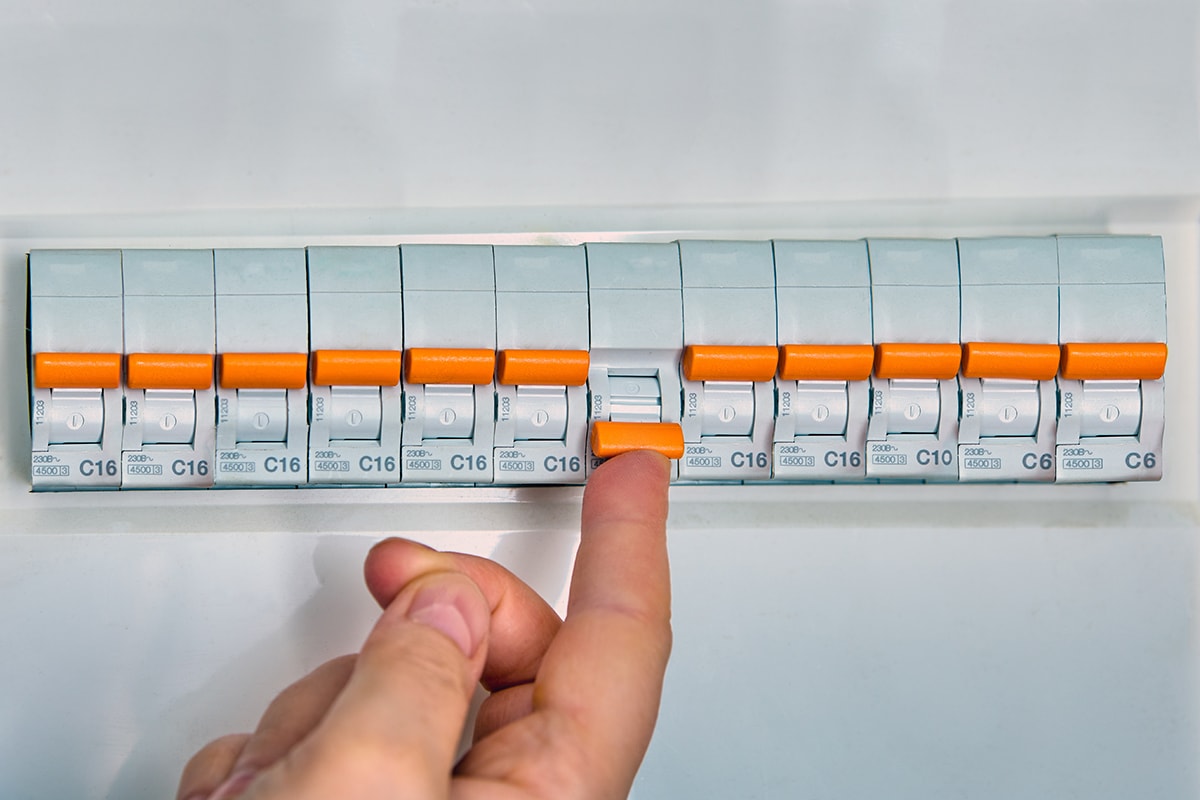
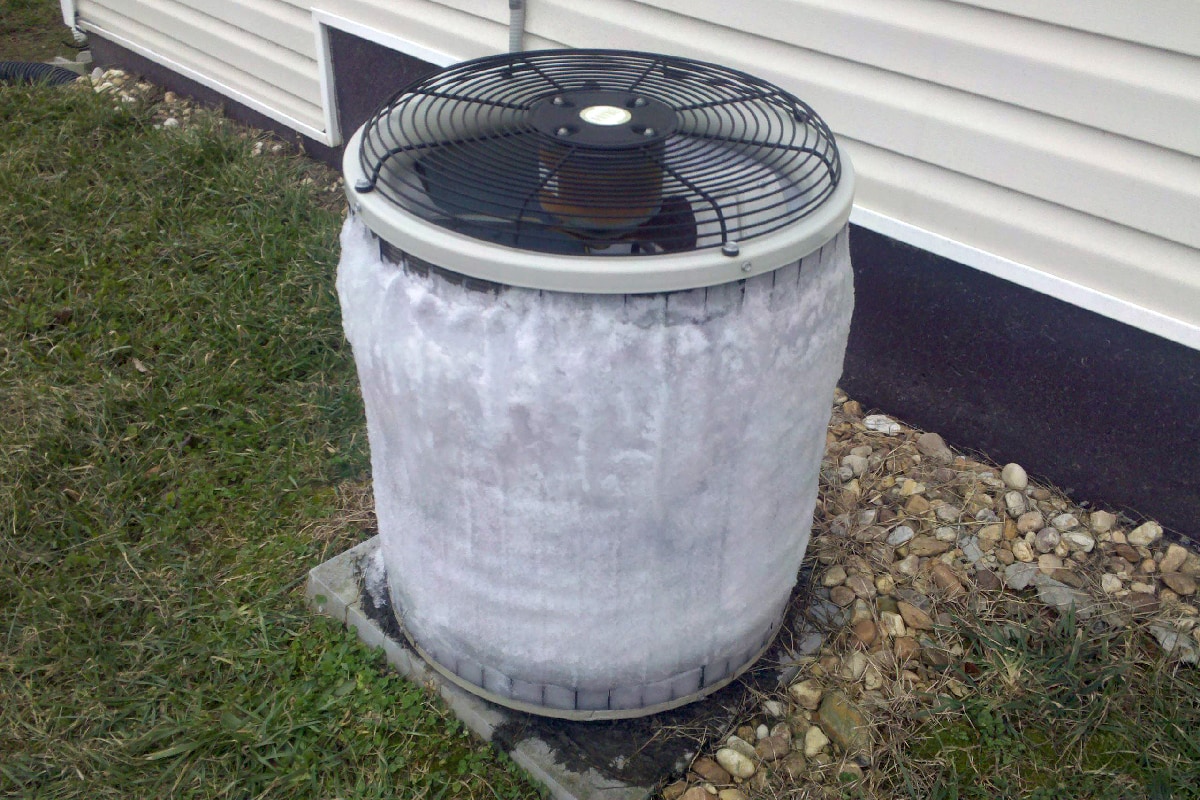
Check out this refrigerant recovery tank on Amazon.
- Refrigerant
- Hand tools like pliers, ratchets, screwdrivers, and wrenches
- Torch
- Switch off the power – It is essential to switch off the AC to prevent injury or death. Locate the power switch and circuit breaker, and turn them off.
- Remove all the refrigerant – To relieve pressure, remove refrigerant from the AC system into a refrigerant tank. But, remember, you have to be certified to do this or call a professional to handle it.
- Cut the refrigerant lines – Disconnect the electrical connector and cut the lines that are on the compressor.
- Remove compressor – Unscrew the compressor and lift it out of the AC unit.
- Install the new compressor – Screw the new compressor in, and connect it back to the electrical connector. Reconnect the refrigerant lines by blazing them to the compressor.
- Assemble – Put back the condenser unit, and charge the AC system with the refrigerant you have recovered.
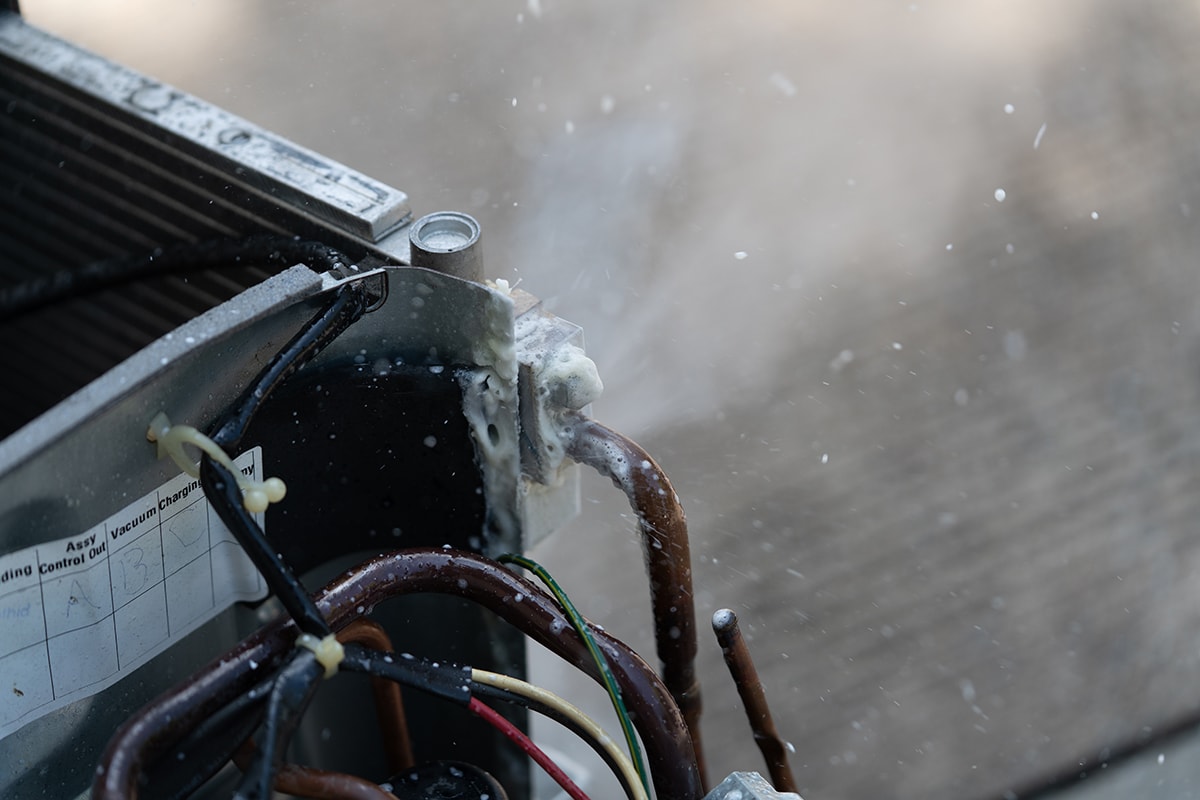
This is a refrigerant recharge kit that you can find on Amazon.
If the leak is in the evaporator coils, it can be equally hard to repair. You will have to remove the non-functional evaporator core and replace it.
It can be hard to look for a leak in the crevices, dips, and curves on all the evaporator coils. Furthermore, it may have many tiny leaks, not one big noticeable leak.
Signs Your AC Has An Oil Leak
You can avoid hefty amounts on repairs or even AC replacement by detecting oil leaks early enough. You can know this through the signs below:
Unusually High Electric Bills
When there’s a refrigerant and oil leak in your AC, it works harder than before. It means your unit will use more energy than is the norm, which will show in your electric bill.
Strange Noises
A grinding sound is a sign there isn’t enough oil in your unit. The refrigerant contains oil to reduce friction between moving parts in your AC. As earlier discussed, when the refrigerant leaks, the oil also leaks.
Thus, unlubricated parts in the unit will produce a grinding sound. Sounds coming from your outdoor unit are standard.
But when you start hearing thumping, grinding, or screeching noises, it could mean a leak in your AC. For example, hissing sounds are caused by leaks coming out through the holes or cracks in the coils.
Circuit Breaker Tripping
Read more : Moving house and travelling with cats
A faulty compressor has to work more than usual, causing the electrical wires in your home to strain. It could lead to the circuit breaker tripping and cutting off power to your AC.
Hard Starts
Your compressor can have a hard start if it has a problem. The unit shakes when you turn it on. You may not see this because your AC is outside. Therefore, have a look at it once or twice a month.
AC Taking More Time To Cool
When the refrigerant leaks, your AC is incapable of reaching the temperature you have set in your home. Thus your unit takes more time than usual to condition your home.
Higher Humidity
You’ll experience higher levels of humidity in your home. If your AC were functioning normally, it would take only 15 minutes to lower the humidity levels.
Evaporator Coil Freezes
A leak in the coils means less refrigerant and oil. This leads to condensation on the coils as there is an inadequate refrigerant to absorb the heat.
The result is that the evaporator coils cool down to the point ice forms on the coils. You might also notice water droplets on the floor when the ice melts.
Cold Air Not Blowing
If the air coming into your home through the vents is cooler than normal, there is a high possibility there’s a leak in your AC.
Cost Of Repairing An Outdoor Leaking AC
Diagnosing a leak in your AC will cost you between $100 and $300. To repair a leak due to a faulty refrigerant line is the least expensive. And, to repair leaks in the evaporator coil or compressor is very expensive.
On average, the cost of replacing the evaporator coil in your AC unit is $2,180 when the warranty is over for your AC system. Replacing it yourself will cost less, ranging from $600 to $850.
A compressor costs around $1,200-the parts of the compressor cost between $450 and $1,500. To replace a compressor would cost you between $800 and $2,800, with materials and labor costing half of the total price. Labor costs are between $50 and $150 per hour.
In Closing
An oil leak can cause reduce your AC’s efficiency. Therefore, knowing what’s causing it is headway in providing the correct solution.
Before you see the leaks, there are giveaway signs from your AC unit that you should not ignore. It can save you high repair costs, including replacing your AC.
The amount you will spend on the leak/s depends on the cause of the leak and the faulty part. Some parts like the compressor or the evaporator coil need replacement, not repairs, which can be expensive.
You are welcome to read more of our previous posts below:
How Long Does It Take To Replace An Evaporator Coil
How Much Space To Leave Around Outdoor HVAC Unit
Source: https://gardencourte.com
Categories: Outdoor


